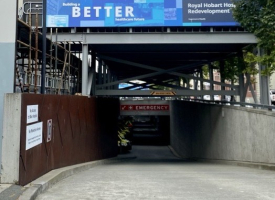Transcript - Dr Omar Khorshid on hospitals need leadership not politics
Transcript: AMA President, Dr Omar Khorshid, on 3AW Mornings, with Neil Mitchell, Tuesday, 3 May 2022 Subject: Hospitals need leadership not politics.
HOST, NEIL MITCHELL: On the line is Dr Omar Khorshid, who's President of the Australian Medical Association. I had a debate with the Prime Minister as well on the issues of funding to hospitals, why Victoria couldn't get more funding, what you needed to fix hospitals, who would take responsibility, where the buck stops? Remember Kevin Rudd famously said, 2007, on health: the buck stops with me. Well, it didn't, but he was trying to make that happen, in fairness. Dr Khorshid, good morning.
OMAR KHORSHID: Morning, Neil.
NEIL MITCHELL: Okay. Your reaction to what the Prime Minister said.
OMAR KHORSHID: Oh, look, it's very disappointing to hear that lack of leadership, and to be honest, it's not a lot different from the other side. There is this idea that the last thing you want is to be held accountable for public hospital performance as a national government. ‘We'll leave that pain to the states.’ And of course, they'll leave the bulk of the paying for that hospital system to the states. But what we need is actually, true leadership.
We need someone to find a solution to the ambulance ramping, the extraordinary wait times in emergency departments, even with urgent conditions. And of course, the blown out elective surgery waiting lists. And that answer, in our view, is a renegotiation of the national partnership agreement, what's called the National Health Reform Agreement, which is the funding instrument for the public hospitals where the Commonwealth provides about 45 per cent. It needs to be kicked up to 50.
Now I heard the PM saying that means the states will reduce their commitment. That's not at all what we're talking about. That's ridiculous. The states understand that if the Commonwealth stumps up some extra cash, that that has to be put into health directly, into hospitals and not into their own state government coffers. And we've heard some of the premiers actually come out and say that publicly. But of course, they would reinvest in health, and of course, we need to remove the cap. There's actually a cap on activity. That means if the states go over that cap, it's only 6.5 per cent, that in fact, the Commonwealth doesn't put in any extra money and the states are on the hook for the full cost of that extra activity that might occur, because the population is getting older....
NEIL MITCHELL: [Interrupts] What do you mean by extra activity, 6.5? What does that mean?
OMAR KHORSHID: So, it's dollars. Basically, 6.5 per cent growth per year is the cap. The Commonwealth won't put in any more than 6.5 per cent. And when you add population growth, you add ageing, you add medical inflation, you add increasing chronic disease, it's pretty easy to get to 6.5 per cent. And only in a state like WA where the government have been actively reducing spending on health are they not anywhere near that cap. The other states are hitting the cap and they need that cap removed.
NEIL MITCHELL: How much- how many billions go into the- into health nationally?
OMAR KHORSHID: Oh, the health is a big cost, that's why governments don't want to talk about health. Medicare costs something like 75 billion, public hospital expenditure. The Government keeps saying it's spending record amounts. I think the last number was $131 billion or something, but these numbers are meaningless until you actually look at where they come from, and those numbers are not, because they're actually giving more money to the states to provide health care. That's the agreement, that's the growth that happens as the population ages and as inflation goes up, et cetera.
So what we need is them actually to go to the table with the states. We're talking 50-50, which we have calculated will cost about $20 billion over four years. That's a lot of money, but that's money that is invested in Australia's health and will go some way to allowing the states to run their systems better, to grow their hospitals, to invest in new technology. Because that's what we need to do. We can't just keep doing things the way we have been and not expect the same outcomes or worse outcomes.
NEIL MITCHELL: That's a fair point. Thank you very much, Dr Omar Khorshid, who's President of the Australian Medical Association.
(ENDS)


